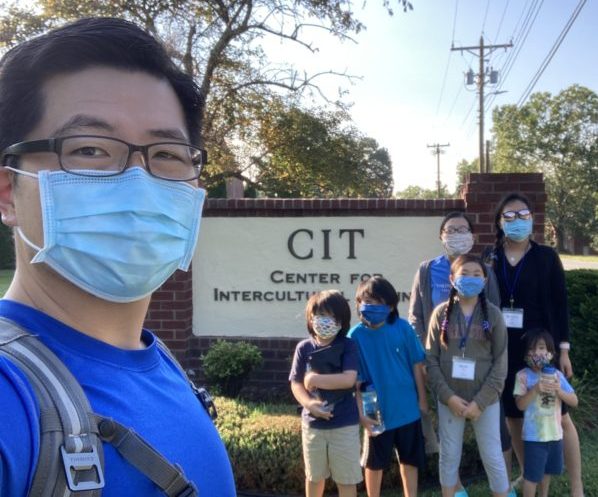Pastor Su Kim and his family are preparing to serve as missionaries in Thailand. This past summer their sending agency, United World Mission, required extensive training in Union Mills, North Carolina at the Center for Intercultural Training. Because of the huge challenge of cross-cultural ministry, this was part of the Kim family’s pre-field requisites. Pastor Su explained, “Basic communication across cultures is challenging enough, let alone communicating the life-changing, eternal truths of Scripture and discipling those who come to know the Lord. So, over the course of six weeks, our training included topics such as transitioning as a family, spiritual warfare, ethnocentrism, ethnography, tools for acquiring another language, team dynamics, conflict resolution, and dealing with culture shock/stress.”
Did you know that every missionary who partners with First Church is part of a mission sending agency? You might be wondering, “Why do they require a sending agency? Doesn’t the church send the missionary as the church in Antioch did (Acts 13:3)?” Mission sending agencies do not replace the church in sending missionaries for the fulfillment of the Great Commission; rather they, complement the church to accomplish the task of world evangelization.
Sending agencies go by various names (e.g. missions board, missions service agency) and have various functions. Some provide minimal tasks such as processing donations as a charitable organization. On the other end, some agencies hire and manage missionaries as employees and direct where and how they con-duct their ministry as a part of the organization’s larger vision. There are thousands of sending agencies; they have different backgrounds, different visions, and different ministry philosophies. So, how does a missionary decide?
Every minute, one person dies in Thailand
without ever having heard of Jesus Christ.
In the 192 years since the gospel came to Thailand,
only 6% of the villages have been reached with the gospel.
Statistics from the eSTAR Foundation, http://estar.ws/Static-Maps.html
My family’s journey to becoming missionary appointees with United World Mission (UWM) took more than two years. The Lord’s call for us is to go to Thailand for a season so we wanted to join an agency that was already working there and that would continue to work there after our return to the States. We also wanted to work with and invest in locals, and to build up native believers, leaders, and churches. Additionally, with a family of five children, we wanted to work as part of an established team rather than pioneer a ministry. Working with local Christians who have a passion for sharing the gospel with unreached peoples in Thailand is something we felt strongly about.
Finding an agency that fit all those requirements was far more challenging than we anticipated. Some made it easy, rejecting us when they learned the size of our family or the ages of our children. It was disheartening, but then God opened a door as only He can. I took a class with a professor who was a missionary with UWM, a smaller sending agency that I had not heard of. He invited me to lunch and the rest is history.
Since joining UWM, our experience has been amazing! They conducted numerous interviews and evaluations to con-firm our calling and fit for the mission. They required training to better prepare us for the challenges of ministry in a cross-cultural context. Once in the field, they will provide supervision and mentorship to encourage our development and to provide accountability. UWM also helps care for our spiritual needs by connecting us with spiritual directors and mentors. They ensure that we are aware of educational options for our children, and even help us plan for retirement.
These are just a few of the reasons First Church partners with missionaries who are already connected with a sending agency. As you can see, the benefits to the missionary and their sending church are immense.
by Pastor Su Kim





